Latest questions:
Trending questions:
Hot questions:
Diet trends
Given all the information available on the internet, how does the man on the street discern what's fact or fiction when it comes to health choices? There are so many 'diets' to chose from, some say this is good, some say that is bad. How does he/she stay healthy and make the right choices for them personally? Does the internet help or hinder his/her search?
16 answers
The average person is bombarded by information on the net. Social media is a great outlet to distribute information. That said, much of the information is false. We live in a society that is obsessed with celebrity, so if a celebrity endorses a "diet", people follow it. But the general public should always speak with a health professional first! Individuals may do more harm with some fad diets, and should seek out a professional.
Thanks for all the answers and input - I am actually a professional nutritionist myself, but this question is what my clients come to me with. I was curious to see others responses and generate positive feedback. I work from a personalized approach and always do my research from reputable databases. I find the internet to hinder my client's progress and confuse them even further. I prefer to compile a unique protocol for them, and then see how they feel on that, and perhaps tweak it if necessary. Many thanks for your feedback.
I agree with Lynne in that a unique profile is required of each client taking into consideration lifestyle, current dietary habits, exercise, and so forth. From a perpective of exercise and athletes, different sports require different types of nutrtion and nutrient timing not to exclude supplementation. An endurance athlete is very different from a strength/power athlete and has different protein, carbohydrate, and fat needs. Lynne is correct in stating that the internet is a hinderance and confuses them even futher due to so much false information, outright lies, incorrect interpretations of studies and just plain greed. Most of the information is money driven in one form or another. Many clients try various supplements that are of poor quality, but heavily advertised and all they end up with is expensive urine and feces. Trust a good nutritionist or dietician.
Seriously? Karel has the dietician/nutritionist (and best) answer. I don't think the internet has changed things much as compared to former methods of fact and fiction related to diet being circulated. A "diet" is proscribed to accomplish various things or treat or manage disease. Depends on your goals. I think the MDs they've had on PBS have a lot of good information. I personally don't believe that eating gobs of meat is good for you, e.g. Atkins or the "Paleo" diet as adult humans don't need more than about 4 oz of quality protein per day. More puts undue stress on the kidneys. I also find it morally irresponsible when so many have so little to sustain them. Basically, everyone is different and, at some point, you have to learn what works best for you and how to take care of yourself.

82 months ago
To sell diet products online requires your visitors to trust your product, and your company.
The Internet is great for finding information but with so much misinformation around heath, Trust is a major factor.
However, there are two different types of trust.
Trust can be built gradually or fast. In fact to get a sale online for a health product all you need is enough trust to get the flywheel moving to the next step.
The two types of trust is gradual trust and accelerated trust.
Accelerated Trust comes first.
This level of trust is built quickly and is only just enough trust to move a visitor to the next step and ultimately towards purchase.
Gradual Trust comes second and over time.
This level of trust can only be build after accelerated trust has begun. Gradual trust is long-term and built slowly over time after purchase
You need both, especially when it comes to diet products online.
As originally mentioned, there are so many different programs, plans, and information out there that it is hard to know which one is legitimate and would work for that specific person. Also, what was discussed was that the people need to make good choices when selecting what they eat. I completely agree with that, but the biggest problem is that many people think they are making a good choice. I am always amazed when looking at the fat content of many salads offered in restaurants. Many people will simply think they are making a good choice and eating healthy when all of the contents make it worse than many of the items considered "unhealthy".
There will be new tools introduced in the near future that will help make better decisions. With smart phones and the related applications/technology, it should be simple to start providing simple tools to upload "goals" and what the person wants to eat and interact with the menu to determine what are the choices that fit that category.
Weight Watchers has always been a simple tool to learn how to moderate what you eat, but tracking points has always been difficult, but they are making it easier.
Eventually the Internet and the related applications will really help people make decisions.
Manufacturers drive to enter nutritional and non-prescription space that has all the hallmarks of late 1800-to early 1900 America. Consumers need to be smart consumers along with having access to good counsel on product selections or best options for their situation.
If you are looking for a diet (or anything else) but you don't have any clue about this, internet and in particular social media are the worse places to query. Indeed you could find something good but how to identify this as you don't have even the basic information? most of the information and products you find online could be really bad, with several risks for your health. In case I need something I will contact a professional nutritionist at the beginning. Something could be good for me, not for you, in my opinion there is not just one global solution that could be applied to anyone.
Growing rapidly a few years ago, the popularity of the term ‘gluten-free’ has slowed somewhat but it’s definitely not on the decline. It’s still going to be a popular diet trend in 2017.
Gluten is a protein found in grains, the part that makes bread fluffy and dough elastic. It’s commonly blamed for bloating, wind and abdominal discomfort, among other things. Whether gluten is to blame for these symptoms is an article in and of itself, but non-celiac intolerance to gluten is not a trend that’s going away anytime soon.
As a nutrition professional, I would recommend that before you eliminate foods from your diet, you seek advice from an accredited practising dietitian. Don’t believe everything you read on Dr Google. There’s a lot more to nutrition and good gut health than just gluten, so get holistic advice that looks at the big dietary picture.
Let me offer the following approach to designing a "perfect" diet for a given individual.
• there are official, recommended daily doses for all nutrients the body needs, for example, vitamin C is 65 to 90 milligrams (mg) a day, Vitamin A for adults is 900 micrograms daily (3,000 IU), potassium for adolescents and adults 4,700 mg/day, etc.;
• decide how many calories you will take in each day, keeping in mind for later choices that proportion of carbs, proteins and fats should be carbohydrates - 45 to 65 percent, protein 10 to 35 percent, and fat 20 to 35 percent of your total caloric intake;
• now, list foods you like to eat, and for each record the amounts of key components - calories that come from carbs, proteins and fats, and amounts of vitamins etc. contained in the given unit (e. g., grams)amount of food; using a spreadsheet for this might work well;
• the final task is easy - you just pick from the list the food you want to eat each day, making sure that within the calories limit, the amounts of carbs, protein, fats, vitamins, etc. are correctly proportioned, and give you the recommended amounts of all nutrients. (NOTE: the proportions do not be spot on every day, but getting it right over a period of a week or so should be possible.)
Like you, I am working in the nutrition industry and I see people being frequently overwhelmed and confused by what they read on the internet. I think the most important determinant to what people choose to believe is whether or not it is in line with their existing beliefs. If new information conflicts with what a person believed to be true, or is morally objectionable to them - it is going to take a lot more convincing for them to actively change their viewpoint. If the new information confirms what they already thought, it requires no effort on their part and they are happy. We are all subject to this to some extent.
Consumers are indeed overwhelmed with all kinds of information regarding nutrition, supplements, diets and so on. Even for a food scientist like me it is had sometimes to find my way through the conflicting information. In addition, 'famous' people are now being paid to promote foods or brands, and the 'experts' are all bad people according to the general public.
I think that it needs to start with educating people. Provide seminars where they can learn more about food, and learn how to make the right choice for them! We shouldn't be telling them this is good and this is bad, every person is different, and with some good education from food experts, people should be able to make the best choices for them.
Many of the diets including the fad ones have had their roles to play, in being either successful or buffering the diet market for those struggling to find a successful route. In recent years research has largely turned regarding nutrition, from what the nutrition does, to the regulation it has on the human gut microbiota and it’s metabolic outcomes. These people struggling with diets would benefit from learning a deeper understanding of the equal struggle the microbiota has in maintaining a stable “healthy” composition, and in doing so, could find a new screening tool for many fad diets claiming health where we now know from a human physiology-microbiota perspective, to be incorrect.
















